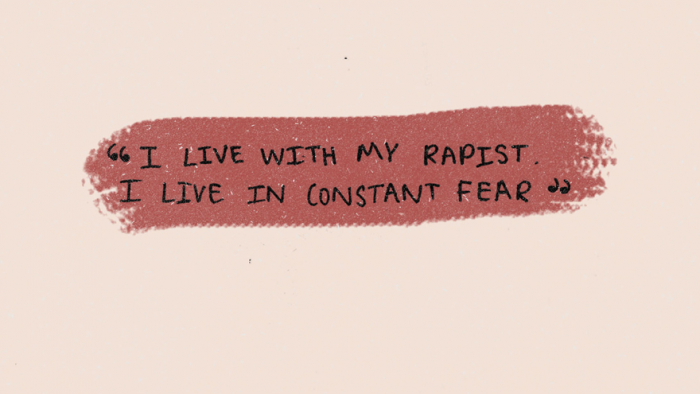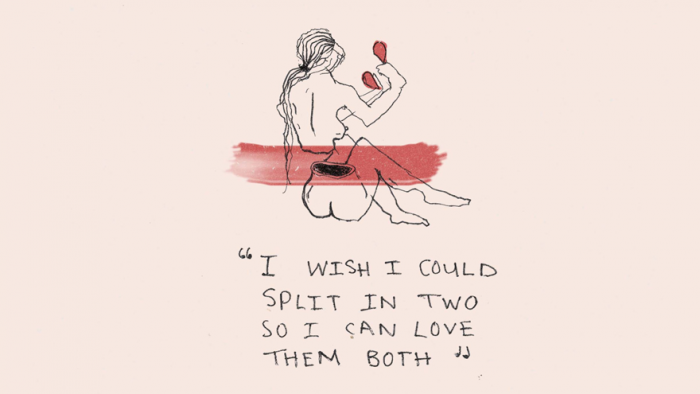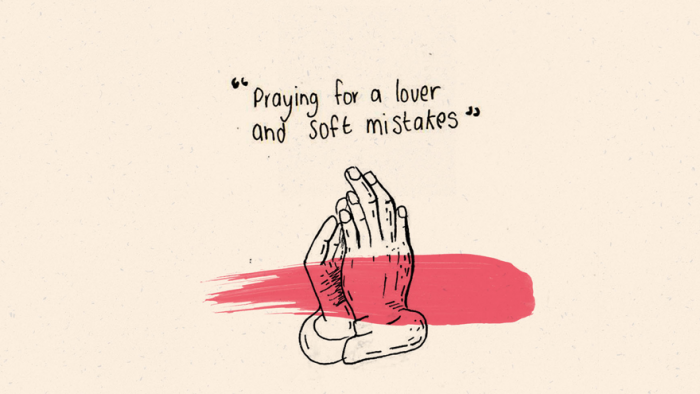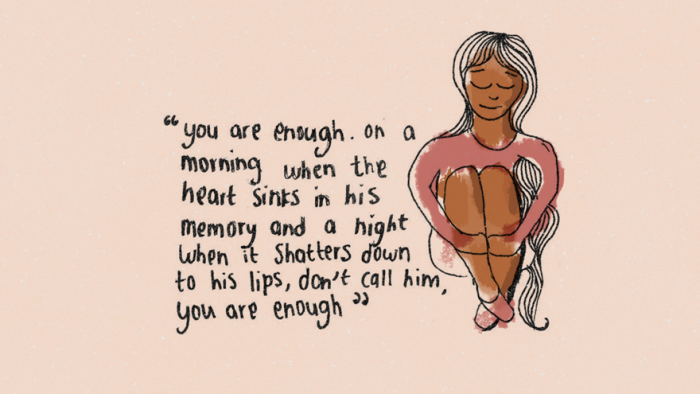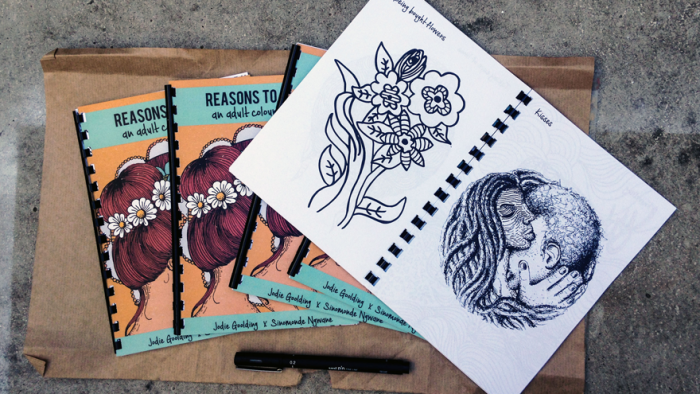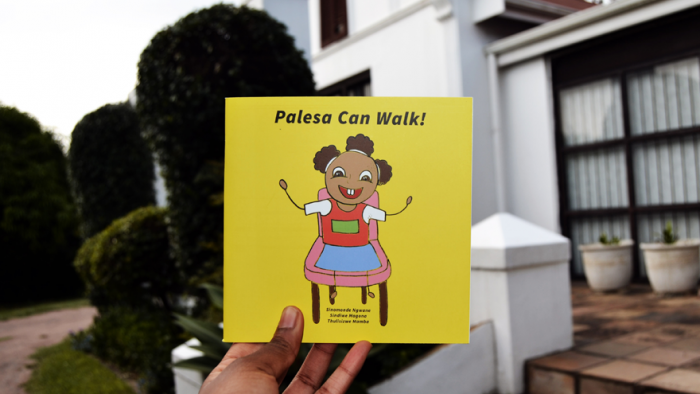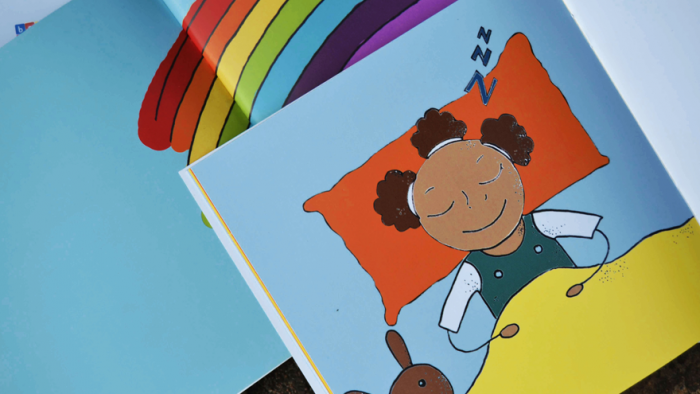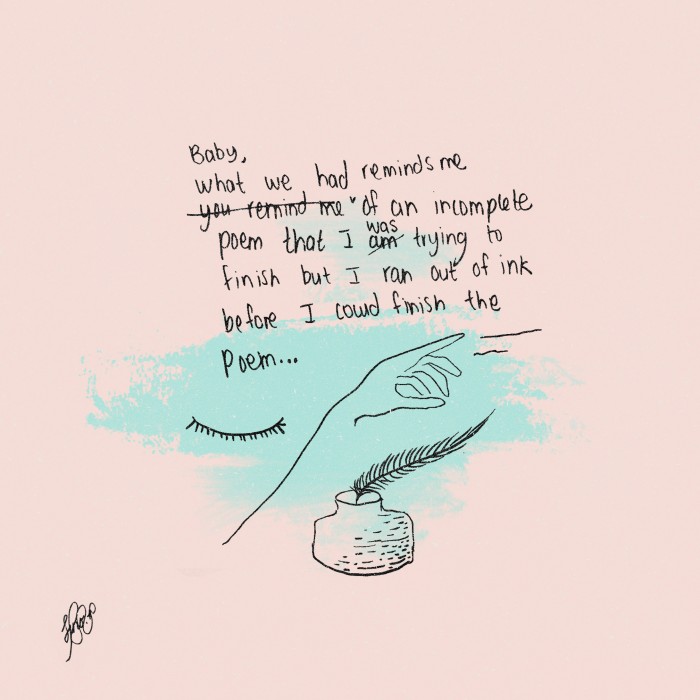Sinomonde Ngwane is a young South African designer and illustrator who uses her art as a tool to explore issues of vulnerability. Her work focusses on revealing sensitivities and fragilities and turning them into empowering art.
Your personal project #DearDiarySeries did exceedingly well and generated a lot of buzz. Is this something you expected?
I really did not expect it to generate this much buzz. I started the project as a result of the difficult life experiences I was going through at the time and I wanted to understand and discover what other people were going through in their lives. I did not expect my audience to receive it as well as they did.
Vulnerability is the underlying theme in your work. Can you talk to us about your fascination with this particular subject matter?
I am a person who is very in tune with their emotional side. I am very interested in knowing what goes on beneath the smiles we wear every day. I love how poets can bare their souls in front of an audience and those very feelings that we feel at a poetry show, I want to evoke that with my art.
You’re a custodian of secrets. Strangers share with you things that they don’t share with anybody else- and you turn their secrets into art. Talk to us about that experience?
It is such a humbling experience. Some of the confessions brought tears to my eyes. It was an emotional journey and one that changed my perspective on how I view people and life in general. Some of the secrets were light-hearted, some people confessed that they had a crush on me, some confessions were so dark and scary. I got to see a side of people that we don’t usually see on social media. The confessions also opened a space for dialogue on some issues. Issues of sexuality, sexual abuse, feminism, structural racism, homophobia, mental illness and other topics which need to be spoken about in order to see a positive transformation in society. The whole process reminded me of a quote from a poem by Alysia Harris. It goes “so don’t mind the ashes, they’re just evidence of how brightly I can glow”. That quote perfectly captures the essence of the whole project.
Would you describe illustrating as a form of intimacy with your audience or is it possible to be removed from your art?
Opening up to someone is not an easy thing to do. It cannot be removed from my work. The process of a stranger bearing their soul to me and me illustrating is one that is co-dependent and one cannot exist without the other. The two co-exist and marry to create an artwork. That very process is where the intimacy resides. It is an almost sacred experience.
Do you think that the art of illustrating and design is something that can be taught?
I believe design can be taught because it can be systematic and has many principles and guidelines that can be followed in order to create a design that can be seen as “good” and I also believe it can be a gift someone is born with. And that’s what differentiates whether you excel in the field or not. Illustration, on the other hand, cannot be taught at all, there are no parameters, limits or standards according to which it can be judged. It is purely based on how it is received by the intended audience.
There is no “right way” to illustrate.
I believe in formal training for security. There is also a lot that you learn in formal training. But on the other hand, formal training can be toxic to creativity because there are too many rules and regulations. I believe with illustration one should be free to do what their heart desires.
Your adult colouring book “Reasons to Smile” is my favourite work of yours. What inspired you to create this book?
Being someone who constantly deals with stress and anxiety, I found art as something that had the ability to calm me down. I was able to create a colouring book to help other people like me to find reasons to smile by diverting their life stresses away by engaging in colouring and interacting with images in my colouring book which is proven to psychologically decrease levels of stress and anxiety.
Speaking of books, can you tell us about the children’s book which you helped illustrate?
The book is titled Palesa can walk and was written by Dr Sindiwe Magona, designed and illustrated by Thulisizwe Mamba and myself at Bookdash in Cape Town last year, November. It was a wonderful experience. Collaborating with other creatives is always something that I enjoy. Also, being able to contribute to creating storybooks which are relatable to African children in a world where most books are not representative of the African Child. It is important to keep creating content for children to break all norms and stereotypes relating to beauty which can be found in storybooks.
You receive wonderful reviews across your social media platforms from happy clients who’ve purchased your work online. Can you talk to us about the relationship between business and creative work?
The relationship between business and creative work is one that is very difficult because as an artist you never want your work to lose its value because you come across as “desperate or cheap” on social media or other platforms. I don’t let what people “like” dictate the type of art I create. I create from my heart and what I love and if it so happens that people love it then that’s even better. I never post my work with a price tag on my social media platforms because I feel like it makes my art lose its value. As an artist the price you place on your work is usually not even half of what it’s worth but because we are trying to make this commercially viable we always having to compromise.
What’s the most challenging aspect of being a young black woman illustrator and graphic designer?
The worst thing is that as a young and black woman illustrator you always feel like you have to prove your worth and you have to work twice as hard to make a name for yourself.
Is there an artist whom you’d really like to work with in the future?
I would love to work with Nokwanda Themba. I love her vibe, her style of illustration, her area of focus and I just have a feeling we would get along well.

